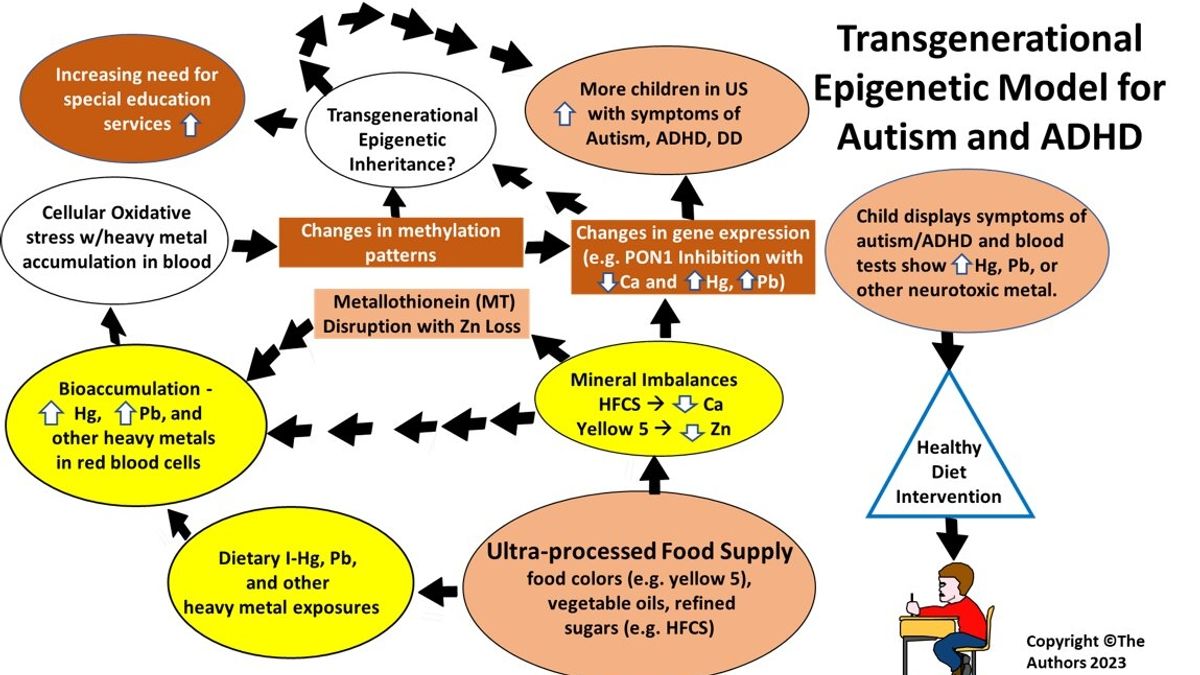
In a groundbreaking development, parents who underwent nutritional epigenetics education have significantly lowered their children’s intake of ultra-processed foods and increased whole and/or organic food consumption. This shift in dietary habits has resulted in a decrease in heavy metal exposure and organophosphate pesticide residues in children, leading to a reduction in symptoms related to autism and ADHD.
The Power of Knowledge
Dr. Dufault, a leading figure at the Food Ingredient and Health Research Institute, spearheaded a clinical trial that demonstrated the transformative potential of nutritional epigenetics education. The study did not directly measure the impact on autism and ADHD symptoms; however, it suggests that nutritional education can influence food choices and potentially affect overall health, including neurodevelopmental conditions.
The education intervention focused on the constructs of the nutritional epigenetics model, which explains how autism and ADHD may develop from excess consumption of ultra-processed foods. These foods lead to heavy metal exposures and dietary deficits, creating mineral imbalances such as loss of zinc and calcium. Inadequate zinc stores can disrupt the function of the metal transporter metallothionein (MT) gene, preventing the elimination of heavy metals found in ultra-processed foods.
A Shift in Perspective
By the end of the education intervention, parents had changed their minds about their ability to control their child’s behavior through diet. This newfound understanding empowered them to make informed decisions about their children’s nutrition, ultimately improving their health and well-being.
“The results are truly remarkable,” says Dr. Dufault. “Parents now understand the profound impact their food choices have on their children’s health. This knowledge is not only changing lives but also reshaping how we view the relationship between nutrition and neurodevelopmental conditions.”
A Brighter Future
As the world becomes increasingly aware of the dangers associated with ultra-processed foods, the demand for whole and organic options continues to grow. This shift in consumer preferences is paving the way for a healthier and more sustainable future.
Dr. Dufault’s research serves as a beacon of hope for families affected by autism and ADHD. By providing parents with the tools and knowledge necessary to make informed decisions about their children’s nutrition, we can help reduce heavy metal exposure and improve overall health outcomes.
The power of nutritional epigenetics education cannot be understated. As more parents gain access to this valuable information, we can expect to see a significant reduction in symptoms related to autism and ADHD, ultimately leading to healthier and happier children.
In conclusion, Dr. Dufault’s groundbreaking clinical trial demonstrates the transformative potential of nutritional epigenetics education. By empowering parents with the knowledge to make informed decisions about their children’s nutrition, we can significantly reduce heavy metal exposure and organophosphate pesticide residues, ultimately improving overall health outcomes for children with autism and ADHD.
